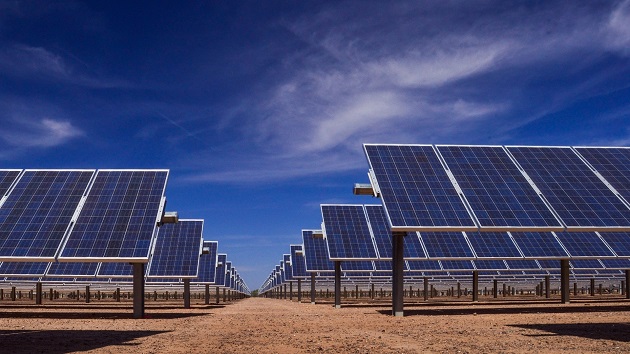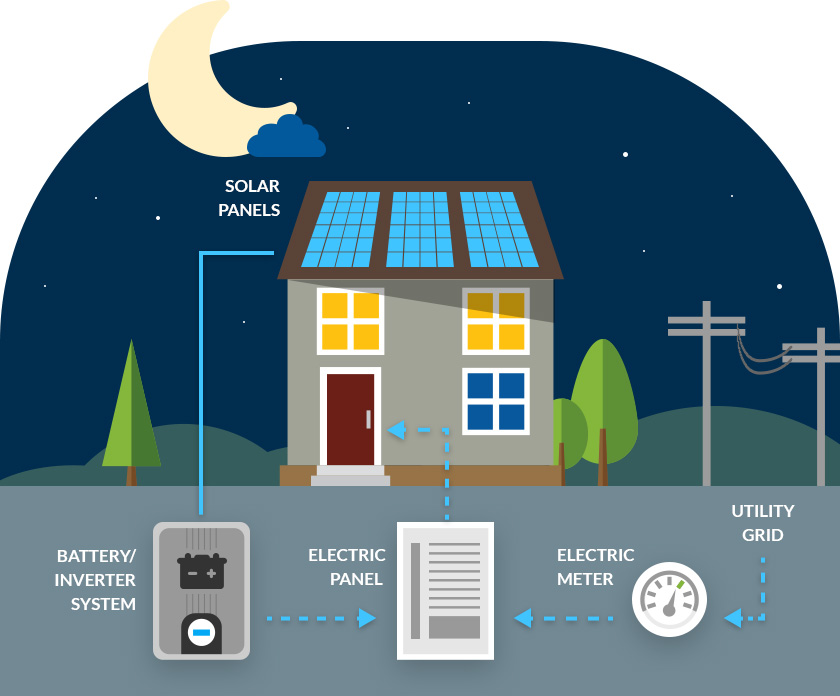Virginia Sustainable Energy Company: Lumina Solar Focuses On Supplying Advanced Photovoltaic Solutions For Houses And Services
History and Founding
Have you ever wondered how a solar panel business springs from a mere trigger of inspiration into a powerhouse of eco-friendly energy? It typically begins with a vision-- one fueled by a mix of development, determination, and a pinch of serendipity. The journey of lots of solar companies mirrors the evolution of the technology itself: from bulky, inefficient panels to sleek, high-efficiency marvels utilizing the sun's bounty.
The Early Days
In the late 20th century, when solar energy was still a specific niche principle, pioneers planted seeds for what would become a global movement. Envision a small workshop filled with curious engineers, tirelessly exploring with solar batteries. Their enthusiasm was palpable, frequently driven by a desire to fight climate modification and decrease reliance on fossil fuels.
One such anecdote is about a founder who, motivated by a camping journey, realized that even in remote areas, the sun might power necessary devices. This simple observation sparked a business's mission to equalize access to clean energy.
Founding Concepts

- Development: Continuously pushing the borders of solar innovation to improve performance and toughness.
- Sustainability: Dedicating to environmentally friendly production and reducing carbon footprints.
- Ease of access: Making renewable resource solutions budget friendly and practical for everyday users.
Turning points in Growth
| Year | Secret Event |
|---|---|
| 1985 | Business founded in a little garage, concentrating on research and development. |
| 1995 | Commercial solar panel product introduced, getting regional attention. |
| 2005 | Broadened to international markets, welcoming worldwide renewable resource objectives. |
| 2015 | Presented advanced solar panel technology with enhanced energy conversion. |
Isn't it fascinating how these incremental steps, frequently neglected, shape the energy landscape today? The solar panel business story is not almost technology; it's about a ruthless quest for a brighter, cleaner future.

Innovations in Solar Panel Technologies
Ever observed how some solar panels shine brighter and last longer? It's not magic; it's the science of photovoltaic effectiveness. Modern photovoltaic panel companies invest heavily in technologies like bifacial cells, which capture sunlight from both sides, boosting energy harvest without broadening roof area. Have you ever questioned why some panels perform better on cloudy days? That's due to advances in thin-film solar technology, which grows under diffused light conditions.
Product Variations Customized to Unique Requirements
One size never fits all. Solar panel providers now offer:
- Monocrystalline panels for optimum efficiency and sleek looks, perfect for space-constrained roofs.
- Polycrystalline panels, which use a cost-efficient option without compromising excessive output.
- Building-integrated photovoltaics (BIPV), combining solar tech seamlessly into architectural elements like windows and exteriors.
Selecting the best product isn't practically upfront cost; it has to do with matching your environment, energy goals, and long-term cost savings. For example, homes shaded by trees require panels that master low-light circumstances, something many neglect until energy bills climb up all of a sudden.
Technical Tips for Ideal Choice
- Evaluate the temperature level coefficient-- lower worths imply panels lose less efficiency on hot days.
- Try to find panels with improved anti-reflective coatings to optimize light absorption.
- Consider the panel's warranty not just for defects, but for ensured power output over decades.
- Do not undervalue the value of the inverter innovation paired with the panels; it can make or break your system's performance.
Beyond Panels: Emerging Patterns
Picture photovoltaic panels that adjust their angle immediately to chase the sun-- tracking systems are becoming more accessible, increasing yield significantly. Or solar tiles that blend invisibly into your roofline, transforming your home into a quiet, self-sufficient power generator. These innovations are reshaping what a solar panel company provides-- not just products, however incorporated energy options.
Market Presence and Global Operations
Ever question why some photovoltaic panel business seem to sprout up in every corner of the world while others hardly make a ripple? The distinction lies not just in innovation however in mastering the art of browsing diverse markets. Broadening internationally resembles planting seeds in various climates-- you should comprehend each environment's distinct conditions to prosper.
Take, for circumstances, the intricate dance of logistics and supply chain management. Delivering panels midway throughout the world isn't almost range; it's about timing, custom-mades, tariffs, and adapting to local need variations. A company with robust global operations anticipates these variables, guaranteeing panels show up on schedule without pumping up expenses. This insight is no little feat and frequently separates market leaders from fans.
Secret Techniques for Expanding Market Presence
- Localized manufacturing: Developing production hubs near target audience lowers shipping hold-ups and import complexities.
- Strategic partnerships: Teaming up with regional companies speeds up market penetration and constructs trust.
- Adaptive product style: Customizing solar panel tech to weather, sun intensity, and infrastructure nuances enhances performance and approval.
What about the human aspect? Photovoltaic panel business operating globally should fix up cultural distinctions and regulatory subtleties without losing sight of their core objective. What works in a sun-drenched desert may fail in a humid seaside region. In some cases, the most innovative option is simply listening-- soaking up local insights to fine-tune technology and approach.
Professionals typically encourage a phased rollout rather than a shotgun expansion. Why risk overextension when measured development develops sustainable momentum? Scaling wisely implies balancing aspiration with functional resilience - Solar Panel Installation Virginia. In the race for sustainable energy dominance, perseverance can be as valuable as speed.
Ecological Impact and Sustainability Practices
When solar panels first emerged, lots of presumed they brought zero ecological baggage. However, the truth is more nuanced. The production of solar batteries involves unusual earth metals and energy-intensive procedures, which can leave a sizable carbon footprint before the panels even reach roofs. The true environmental expense depends greatly on the sustainability practices used by the photovoltaic panel business throughout the lifecycle of their items.
How typically do we pause to consider what occurs to solar panels at the end of their useful life? Unlike batteries or electronics, solar panels can last 25-30 years, however disposal and recycling paths remain underdeveloped in numerous regions. A company committed to reducing ecological harm will have a robust strategy for recycling photovoltaic materials, restoring valuable silicon, glass, and metals to prevent garbage dump build-up.
Key Sustainability Methods
- Utilizing low-impact production techniques that minimize water and energy consumption.
- Carrying out closed-loop systems to recycle production waste back into new panels.
- Engaging in transparent supply chain audits to guarantee ethical sourcing of basic materials.
- Designing panels for much easier disassembly to aid future recycling efforts.
It's worth noting that some solar business have actually originated ingenious approaches, such as incorporating naturally degradable elements or using less hazardous chemicals throughout fabrication. This not only lowers environmental pressure but also sets a precedent for the industry. The concern remains: can the solar industry truly pivot towards a circular economy model without sacrificing efficiency or cost?
Expert Tips for Examining Sustainability
- Ask about the company's dedication to carbon-neutral production and whether they balance out emissions.
- Examine if they partner with licensed recycling centers dedicated to photovoltaic panel waste.
- Look for openness reports detailing ecological impacts and sustainability goals.
- Consider the durability and guarantee of panels as an indirect step of resource efficiency.
In the end, going with solar energy ought to suggest more than just slashing electricity bills; it's about nurturing a future where energy is get more info harvested properly and waste is attentively handled. Solar panel business that welcome this viewpoint not just illuminate homes however likewise cast a brighter light on sustainable development.